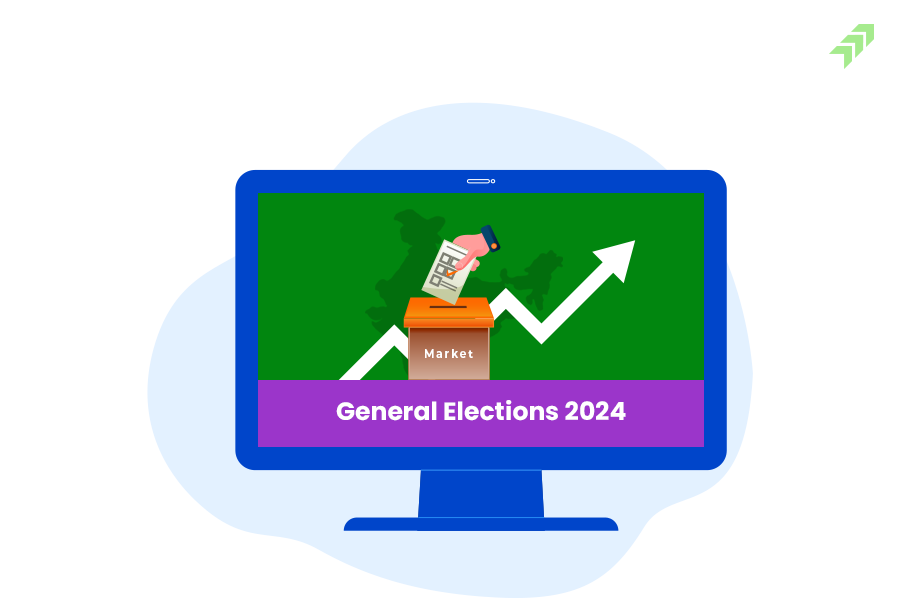Three-phase polling has been concluded, and there are mixed signals coming from the market, but dominantly, a wave is running that the incumbent party, i.e., the Bharatiya Janata Party, will form the government after the final results are declared for the Lok Sabha 2024 election.
As we all know, there is no such thing as a 100% sure-set probability for anything. If we take out the sun, moon, and round earth, there can be a minute-by-minute percentage of probability denoted as the least likely expected probabilistic scenario, as we would be doing today. Rahul Gandhi, the face of the Indian National Congress, along with leaders of INDI alliance believes that the BJP will not repeat its 2019 performance and will limit its seat count to 150–200.
So let’s give this scenario the wildest thought and assume the BJP will not win the Lok Sabha election. Investors reading this blog would be thinking of the sell everything scenario as and when the market opens, aka the circuit breaker across the market, and move to something that the government can’t touch. Investors have seen congress era of setting industry policy, handling foreign policy, government focus toward economic growth and delay in implementation of projects on grounds. FII has been net sellers in Indian market because foreign institutional usually wait for election results to be declared and accordingly take call, even if time warrants paying a premium. The thing investor would be encountering initially would be a circuit breaker.
In India, SEBI fixes the circuit limits for market indices. If the market indices move 10%, 15%, and 20% on either side, then an index-based market-wide circuit breaker system applies at three stages. These circuit breakers, when triggered, bring about a coordinated trading halt in all equity and equity derivative markets nationwide. The market-wide circuit breakers are triggered by the movement of either the BSE Sensex or the Nifty 50, whichever is breached earlier.
Exchanges calculate circuit limits using the previous day’s index closing price. The closing price is rounded off to the closest tick size. In the table below, the circuit breaker rules for market indices are listed.
| TRIGGER LIMIT | TRIGGER TIME | MARKET HALT DURATION | PRE-OPEN CALL AUCTION SESSION POST MARKET HALT |
| 10% | Before 1:00 pm. | 45 Minutes | 15 Minutes |
| At or after 1:00 pm upto 2.30 pm | 15 Minutes | 15 Minutes | |
| At or after 2.30 pm | No halt | Not applicable | |
| 15% | Before 1 pm | 1 hour 45 minutes | 15 Minutes |
| At or after 1:00 pm before 2:00 pm | 45 Minutes | 15 Minutes | |
| On or after 2:00 pm | Remainder of the day | Not applicable | |
| 20% | Any time during market hours | Remainder of the day | Not applicable |
SEBI also sets the circuit limits for individual securities. As per the BSE and NSE circuit rules for stocks, stock circuits are predetermined for 2%, 5%, 10%, or 20% levels daily based on stock category. However, stocks with listed derivative contracts or parts of indices with derivative products do not have circuit limits. They have derivative contracts, which is the simple reason for not having a circuit. A trader can hedge risk and volatility by taking trades in the F&O segment.

















